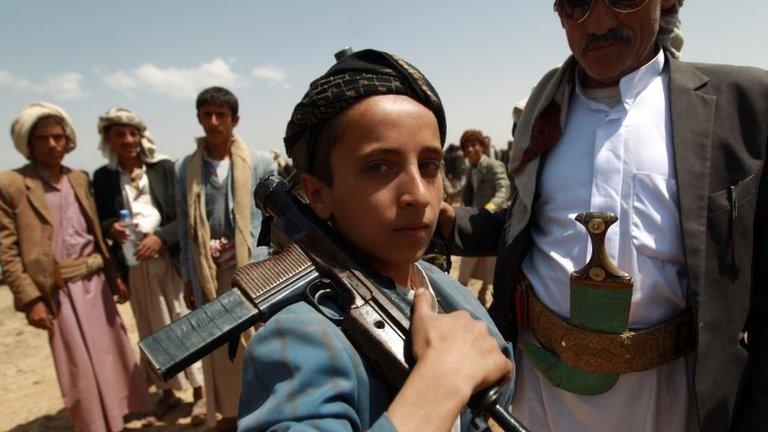Yemen war: Saudi-led coalition 'to reopen some ports'
- Published
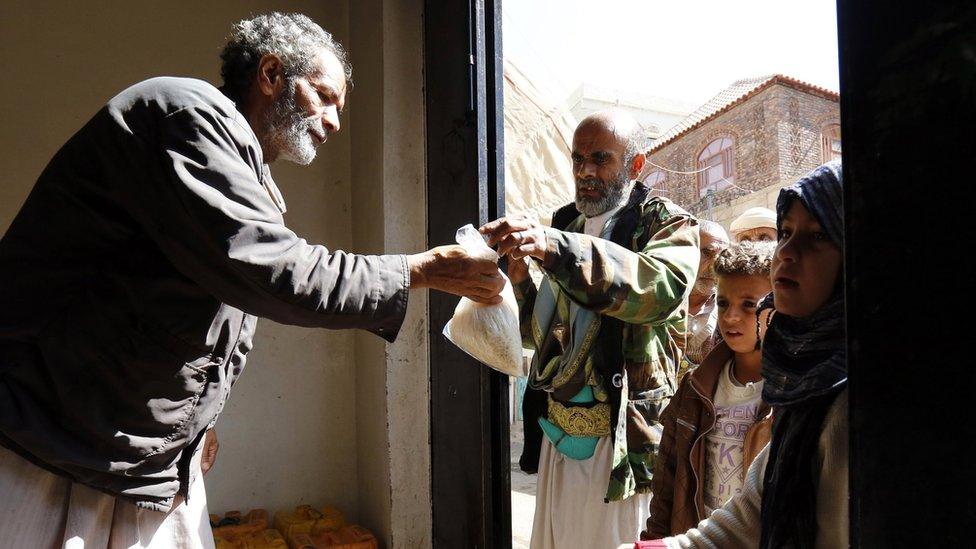
The UN said a protracted delay in the delivery of food would affect six million vulnerable people
A Saudi-led coalition fighting in Yemen is to begin reopening some air and sea ports, a week after closing them in response to a missile attack on Riyadh.
Ports controlled by Yemen's government, which the coalition is backing in the civil war, will reopen within 24 hours, the Saudi mission to the UN announced.
Aid deliveries to rebel-held ports will resume once the UN addresses concerns about alleged weapons smuggling.
The coalition has faced widespread criticism for tightening its blockade.
The UN's aid chief warned that the restrictions could trigger "the largest famine the world has seen for many decades, with millions of victims"., external
The boy who shocked the world
More than 8,670 people - 60% of them civilians - have been killed and 49,960 injured in Yemen since the coalition intervened in the war between forces loyal to President Abdrabbuh Mansour Hadi and the rebel Houthi movement in 2015, according to the UN.
The conflict has also left 20.7 million people in need of humanitarian assistance, created the world's largest food security emergency, and led to a cholera outbreak that is believed to have affected 913,000 people and caused 2,196 deaths.
The coalition announced the "temporary closure" of Yemen's air, land and sea borders on 6 November, two days after a ballistic missile fired from rebel-controlled territory was intercepted over Riyadh's King Khaled International Airport.
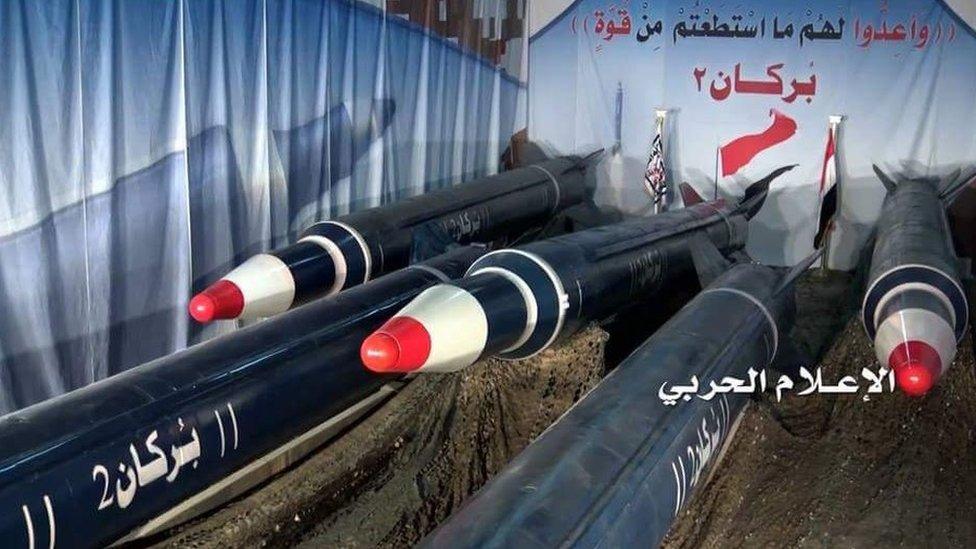
The Houthi movement said it had fired a Burkan 2 ballistic missile at Riyadh's airport
Saudi Crown Prince Mohammed bin Salman accused Iran of supplying the missile to the Houthis, which he said amounted to an act of "direct military aggression".
But Iranian President Hassan Rouhani denied arming the rebels and said the missile attack was a "reaction" by Yemenis to coalition air strikes.
The coalition said it would continue to allow aid to enter Yemen under strict vetting procedures, but the UN said on Saturday that no permits had been received for any humanitarian flights to and from Yemen or for the World Food Programme's boat to Aden, external.
The WFP warned that a protracted delay in the delivery of food supplies would affect six million vulnerable people, and that the depletion of nutrition supplies would deprive 27,000 malnourished children of the required treatment.
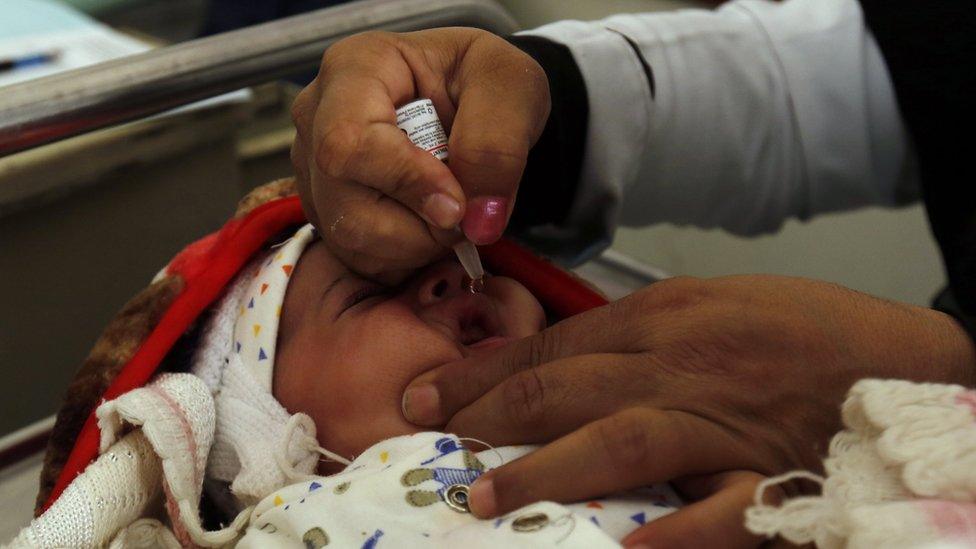
Current stocks of vaccines will run out within a month without fresh deliveries
The World Health Organisation meanwhile said its medical supplies were running critically low, and that at least one million children under the age of one would be at risk of diseases including polio and measles if vaccine deliveries were blocked.
On Monday, the Saudi mission to the UN said the coalition was taking "all possible measures" to alleviate the suffering of the Yemeni people and that steps were being taken to start the process of reopening air and sea ports, external.
"The first step in this process will be taken within the next 24 hours and involves the reopening of all ports in areas controlled by the government of Yemen, including Aden, Mukalla and Mocha."
It added that the coalition had asked the UN to send a team of experts to Riyadh to review the organisation's procedures "to enhance and deliver a more robust verification and inspection mechanism aimed at facilitating the flow of humanitarian and commercial shipments while preventing the smuggling of weapons, ammunition, missile parts and cash".
The head of the rebel Presidency Council, Saleh al-Sammad, said on Monday that with the tightening of the blockade the coalition had "shut down all doors for peace and dialogue", while a rebel military commander threatened on Sunday to attack warships and oil tankers from coalition countries in retaliation.
- Published9 November 2017
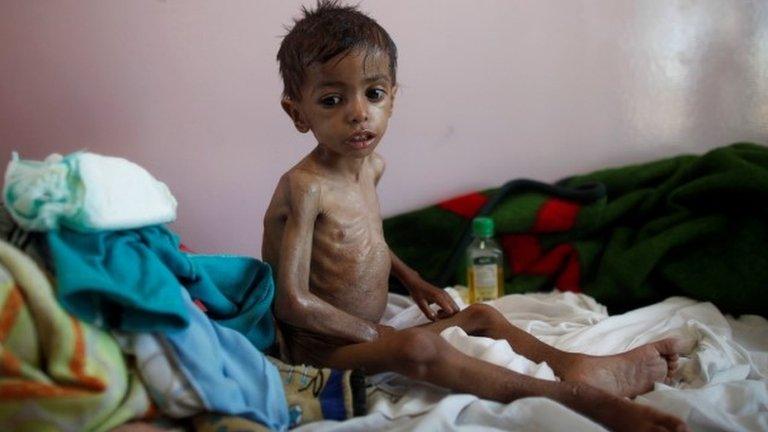
- Published7 November 2017
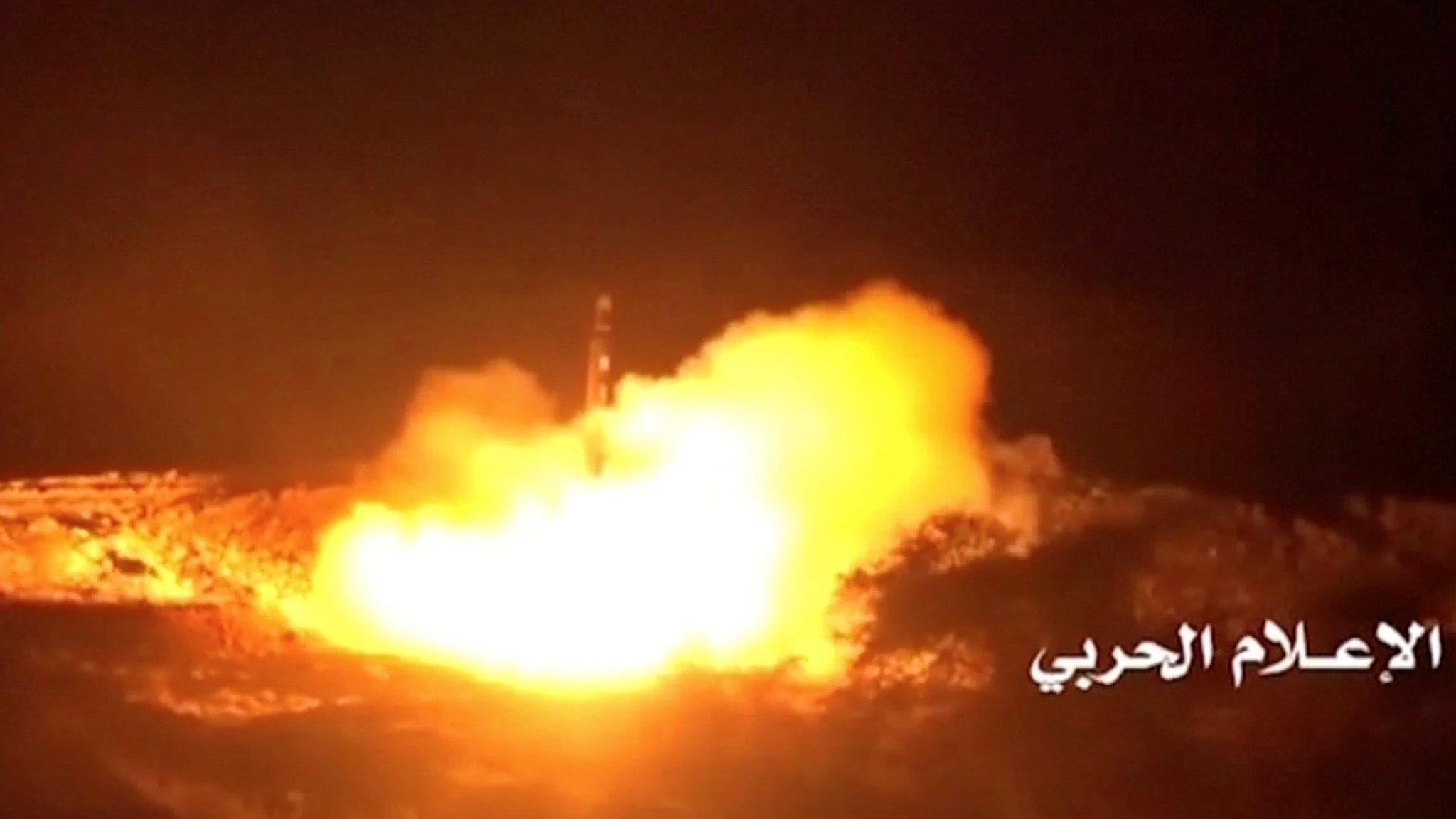
- Published6 November 2017
- Published23 August 2017
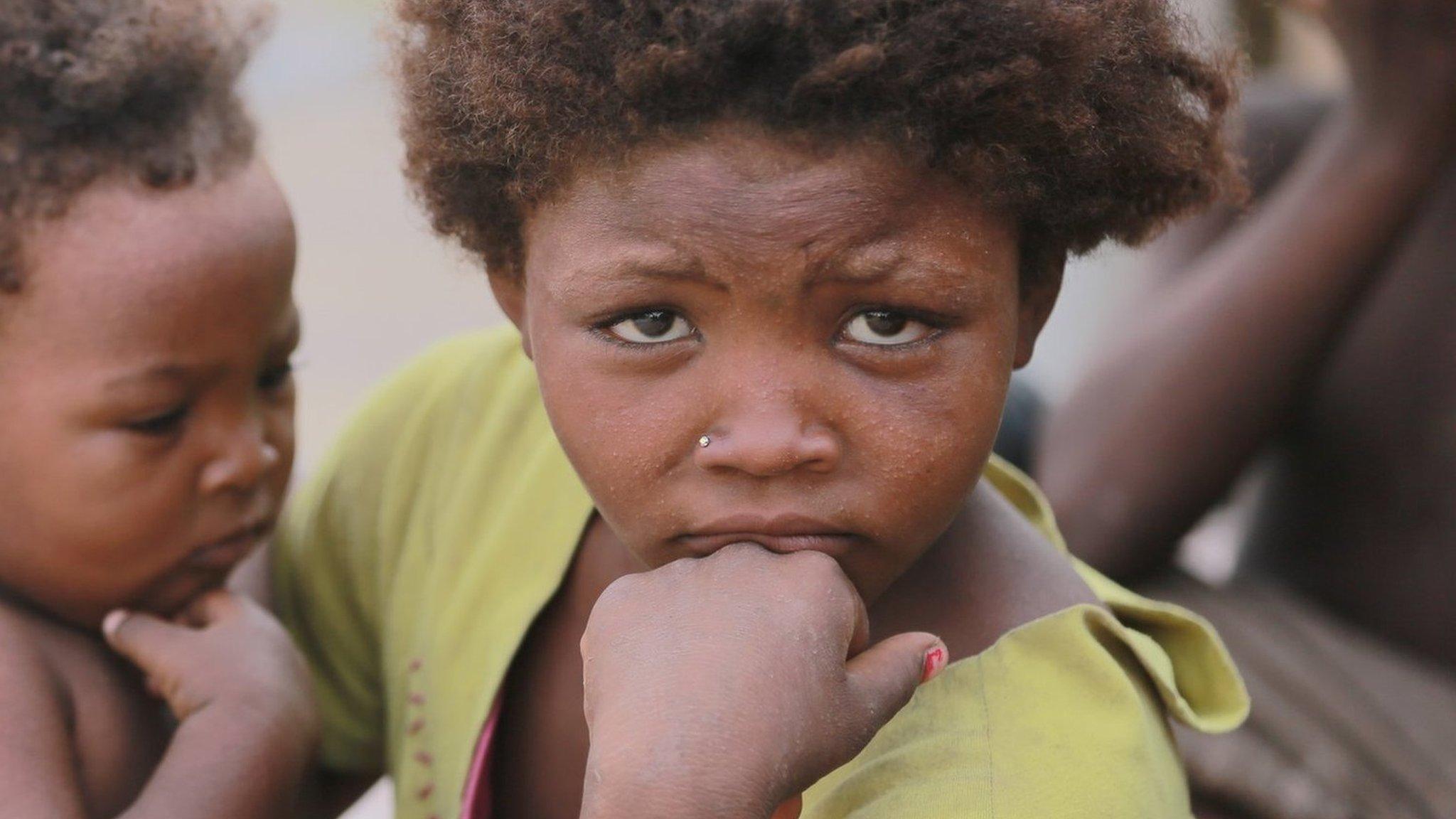
- Published5 October 2017
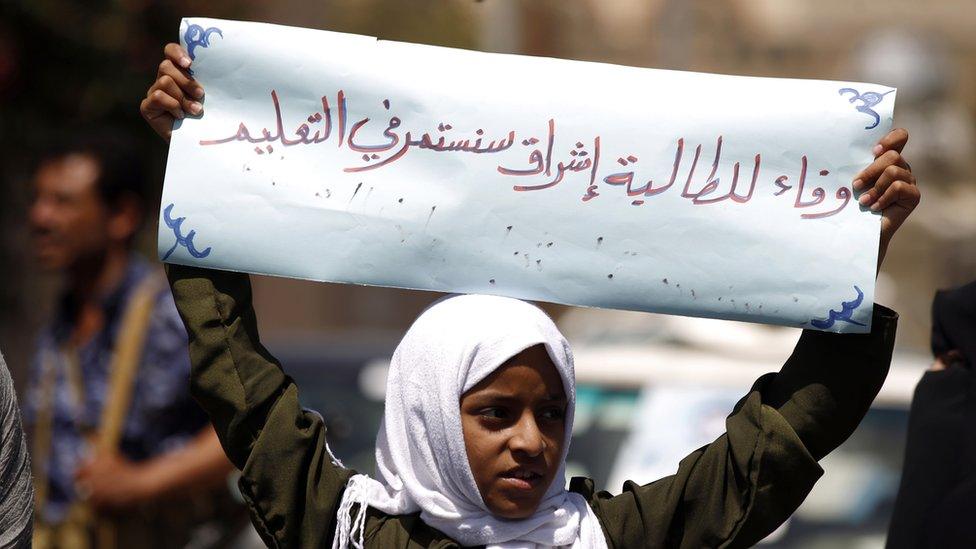
- Published14 April 2023
